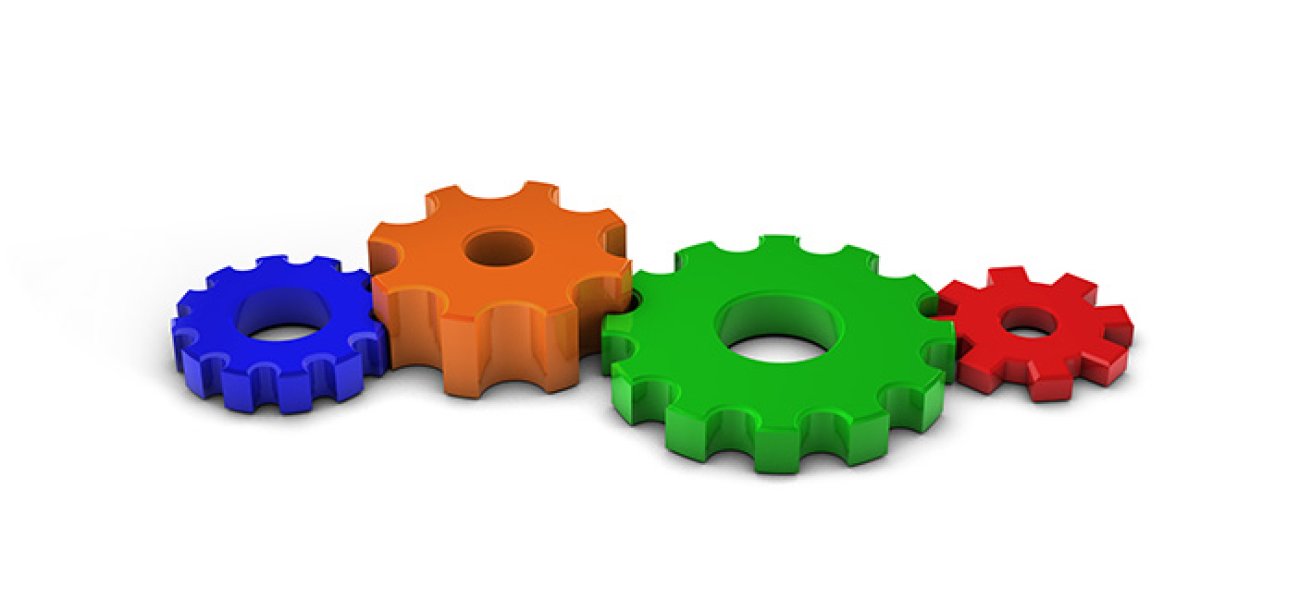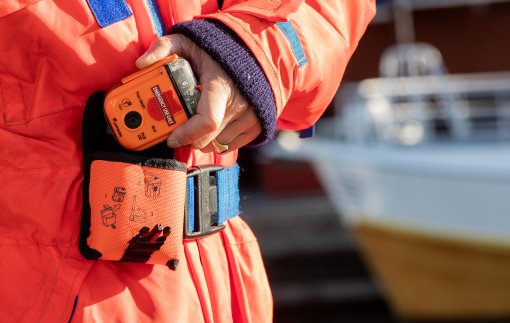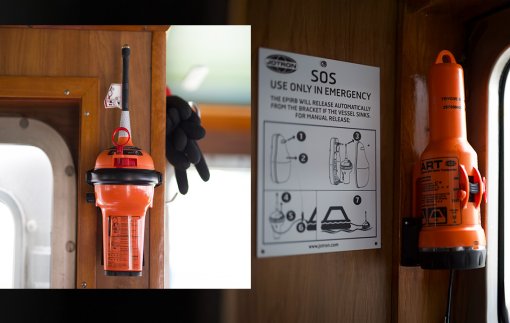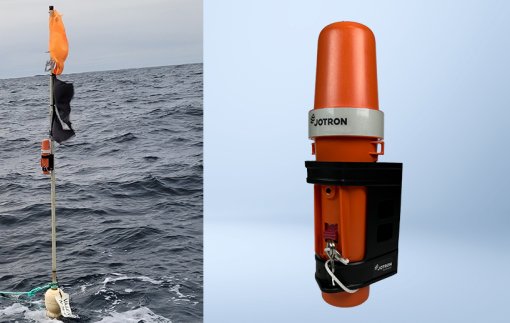Product certification in accordance with IMO SOLAS and GMDSS
Accurate and valid product certification is crucial for regulatory compliance. It is also vital for vessel owners and crew to know that their equipment is approved according to current standards.

Product certifications, standards and approvals
The Global Maritime Distress and Safety System (GMDSS) is an international system for automated emergency signal communication for ships at sea. This system is a set of safety procedures, types of equipment and communication protocols used for safety and rescue operations of distressed ships, boats and aircraft. The GMDSS is developed by the International Maritime Organization (IMO) as part of the International Convention Safety of Life at Sea (SOLAS).
EPIRB, SARTs and portable GMDSS VHF radio are GMDSS safety products subject to various types of certificates:
Regulatory compliance
Legal requirements
A multitude of nations enforce strict regulations that mandate product certification before they hit the maritime market. Products complying with IMO, SOLAS and GMDSS regulations, necessitate approvals and certifications under the EU Marine Equipment Directive (MED) and the US Federal Communication Commission (FCC). Quality management systems, such as ISO standards often complement these product-specific certifications.
Market access
If lacking proper certification, products can be restricted from entering or being offered in targeted markets. It is crucial to emphasize that approvals and certifications must always adhere to the latest revisions. However, a transition period between old and new revisions may occur in some markets.
GMDSS safety equipment
EPIRBs, SART’s and portable GMDSS VHF radios are GMDSS safety equipment and must comply with both MED and FCC requirements. Under the MED framework, products must be approved and certified according to MED-B, which pertains to product approval. Additionally, the MED requirement mandates that a manufacturer of a MED-B approved product, must also be certified according to MED-D. Both MED-B and MED-D approvals and certifications are conducted by an external accredited body. A product approved under MED-B and MED-D will feature a "wheelmark" label.
To enter the American market, EPIRBs, SART’s, portable GMDSS VHF radios and AIS’ Class A must meet FCC and the Radio Technical Commission for Maritime Services (RTCM) standards. The typical application process involves applying to the United States Coast Guard (USCG) to obtain a verification. When receive, the process continues by applying to the FCC. A product approved by the FCC will be assigned a unique FCC ID to be physically marked on the product's label.
In addition to MED and FCC approvals and certifications, there are other national certifications, for example the Australian Maritime Safety Authority (AMSA) for Australia, the National Telecommunications Agency (ANATEL) for Brazil and the China Classification Society (CCS) for China. Obtaining these certifications generally follow similar processes as to those required by MED and FCC.
Innovation and improvement
Advancing technology
Certification frequently mandates adherence to the latest standards and technologies, fostering innovation. For instance, ISO 9001 certification promotes the continuous enhancement of quality management systems.
Industry leadership
Companies that obtain certification are often regarded as industry leaders, setting standards for quality and safety.
Customer satisfaction and loyalty
EPIRBs, SART’s, portable GMDSS VHF radios and AIS’ Class A are subject to international and national regulations, making them mandatory equipment for most commercial vessels and fishing boats. Vessel owners and personnel must be confidence that the mandatory onboard products are top-notch quality, aligning with the current product standards, approvals and certifications. As part of the required documentation, vessels must keep a filed copy of the products’ certifications and approvals on board. This is crucial because these products undergo annual inspections by a radio surveyor in accordance with GMDSS requirements.




